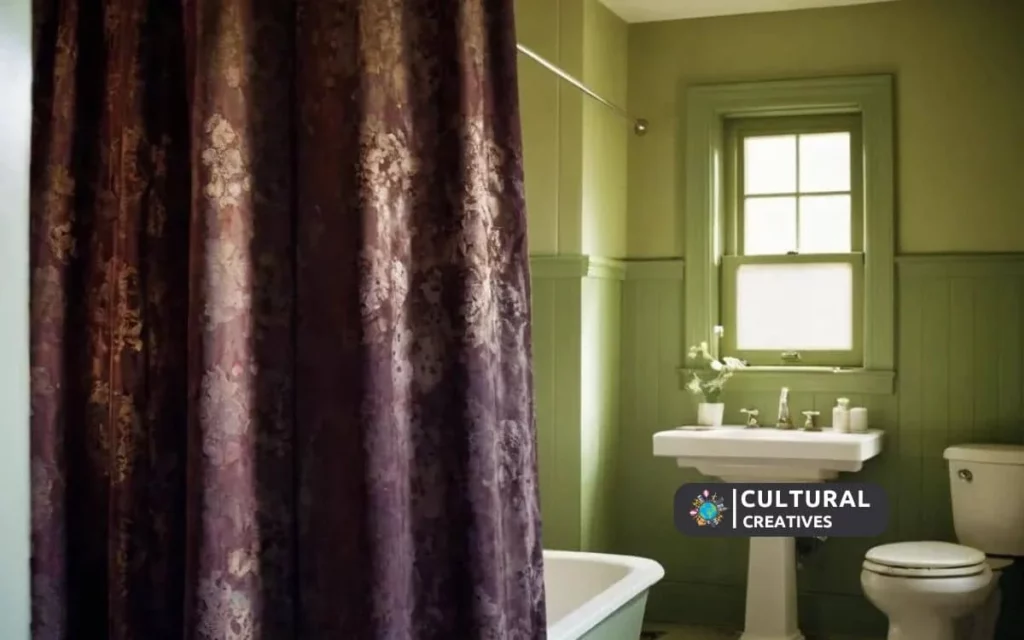To report unsanitary hotel conditions, contact the local health department or file a complaint with a consumer protection agency. Ensure you have evidence of the unsanitary conditions to support your claim.
Discovering unsanitary conditions in a hotel can be unsettling and potentially hazardous to your health. Knowing whom to contact and how to report these conditions effectively is crucial for ensuring they’re addressed quickly. Whether it’s a problem with cleanliness or a more severe issue like pest infestations, taking the right steps to report the issue can lead to swift action and remediation.
Being a guest, you have the right to expect clean, safe lodging, and reporting substandard conditions not only protects you but also future guests. Remember, evidence such as photos and detailed accounts of your experience will significantly assist in the resolution process. It’s important to be part of the solution by raising concerns responsibly.
Spotting The Red Flags Of Unsanitary Conditions
Ensuring a clean environment is crucial for a pleasant hotel stay. Guests expect spotless rooms. Yet, some hotels fall short. Knowing how to spot red flags for unsanitary conditions can safeguard your health. It can also help you choose the right place to stay. Let’s discuss the clear warning signs that signal a need to report.
Visible Signs Of Dirt And Neglect
Dirt and neglect are big no-no’s in hotels. Look for these obvious issues:
- Stains: on carpets, walls, or bedding
- Dust: thick layers on surfaces and furniture
- Trash: left behind from previous guests
- Spills: not cleaned up
These should trigger an immediate reaction to report. A clean hotel manages these issues fast and effectively.
Unpleasant Odors And Their Implications
Bad smells can point to deeper problems. Here’s what they could mean:
| Odor Type | Possible Cause |
|---|---|
| Moldy | Water damage, potential mold growth. |
| Sewage | Bathroom leaks, plumbing issues. |
| Rotten | Perishable items left to decay. |
Smells like these suggest a poor cleanliness standard. They often require immediate attention from hotel management.
Health Risks Associated With Dirty Hotel Environments
Staying in a hotel should be a comfortable experience. Yet, unkempt rooms pose serious health risks. It’s crucial to spot and report these issues quickly. Dirty hotel environments can lead to various illnesses. They range from mild allergic reactions to severe infections. Below, explore the main health risks lurking in untidy hotel spaces.
Potential For Disease Transmission
Unclean hotels may spread germs. These germs cause diseases. Guests touch surfaces like doorknobs and remote controls. If these are not clean, germs transfer easily. Illnesses like the flu or even stomach viruses can pass from guest to guest. Such outbreaks harm public health.
- Viruses: Common cold, flu, norovirus
- Bacteria: E. coli, salmonella, staph infections
- Parasites: Bedbugs, scabies
Allergens And Respiratory Issues
Hotels with poor cleaning practices are breeding grounds for allergens. Dust mites and mold thrive in these settings. They trigger allergies and asthma attacks. These issues affect breathing. Staying in a dusty, moldy room puts your health at risk. It’s especially dangerous for kids and the elderly. Always check for signs of mold and dust.
| Allergen | Health Impact |
|---|---|
| Dust mites | Sniffling, sneezing, itchy eyes |
| Mold | Coughing, wheezing, throat irritation |
| Pet Dander | Allergic reactions, asthma symptoms |
Documenting Your Experience
Staying at a hotel should be comfortable and clean. When unsanitary conditions appear, you must take specific steps to document your experience. This is crucial for reporting the issue effectively. Start by collecting clear evidence and keeping a detailed record of all interactions with hotel staff concerning the situation.
Taking Photos And Videos As Evidence
- Use your phone or camera to take pictures from different angles.
- Make sure the timestamp feature is enabled for legitimacy.
- Record videos of the unsanitary conditions, capturing as much detail as possible.
- Document the entire room, not just problem areas, to give context.
- Keep backups of all files in case they are needed for future reference.
Keeping A Record Of Communication With Hotel Staff
| Date | Staff Member | Communication Method | Summary of Conversation |
|---|---|---|---|
| MM/DD/YYYY | Front Desk Clerk | Phone Call | Reported issue, no immediate action taken |
| MM/DD/YYYY | Housekeeping Manager | In Person | Shown pictures, promised room cleaning |
Ensure notes are clear and accurate. Store all documentation safely. These records are essential for a report on unsanitary conditions. They support your case and show you have made efforts to resolve the issue directly with the hotel.
Voicing Concerns To Hotel Management
Welcome to our guide on how to navigate uncomfortable situations at hotels. Discover the most effective ways to voice concerns to hotel management regarding unsanitary conditions.
Approaching Staff With Complaints
Speak up if something is not right. It’s important to report cleanliness issues as soon as you notice them. Here’s how to effectively approach hotel staff:
- Find a staff member: Look for someone who seems approachable and responsible.
- Be specific: Describe the unsanitary conditions you’ve encountered clearly.
- Stay calm: Keep the conversation polite to encourage helpful responses.
- Request resolution: Ask how they intend to fix the problem and by when.
When To Escalate The Issue To Higher Management
If your initial complaint doesn’t lead to action, take the following steps:
| Step | Action |
|---|---|
| 1 | Document everything: Take pictures and note times and dates. |
| 2 | Request to speak to a manager: Be firm about needing to talk to someone higher up. |
| 3 | Follow up: If there’s no immediate solution, ask when you can expect one. |
| 4 | Put it in writing: Send a formal complaint via email or the hotel’s contact form. |
Remember, management values your feedback as it helps them maintain standards. Don’t hesitate to raise your voice.
Navigating Health Departments And Reporting Channels
When a hotel stay turns sour due to unsanitary conditions, taking action is essential. Knowing where and how to report the issues can safeguard future guests and bring about necessary change. This guide walks through identifying authorities and understanding the reporting process.
Identifying The Right Local Authorities
Health departments oversee hotel hygiene. They ensure hotels meet safety standards. Your location dictates the correct department. It’s often a county or city health department.
Use these steps to find the appropriate body:
- Search online for “health department near me”.
- Check the hotel’s municipality website. Look for health-related contacts.
- Call a non-emergency local government line for guidance.
Understanding The Reporting Process
The process for reporting a hotel involves several clear-cut steps:
- Gather evidence of unsanitary conditions. Photos and notes are helpful.
- Approach the hotel management first. Offer them a chance to rectify the issue.
- If the response is inadequate, make a formal complaint to the identified health department.
- Submit your evidence. Use the department’s preferred submission form, either online or by mail.
- Follow up if necessary. Keep a record of all correspondence and responses.
When reporting, be precise. Describe the issue clearly and concisely. Time and date stamps on photos add credibility to your case.
Leveraging Online Reviews And Social Media
Experiencing unsanitary conditions at a hotel is unacceptable. Reporting these issues can protect future guests and hold the establishment accountable. In the digital age, online reviews and social media are powerful tools. They can amplify your concerns and prompt swift action from hotel management.
Posting On Review Platforms
Many travelers trust online review platforms before booking accommodations. These sites are the perfect place to report unsanitary hotel conditions.
- Identify the most popular review platforms like TripAdvisor, Yelp, and Google Reviews.
- Write a clear, concise review detailing your experience. Use specific examples.
- Include photos if you have them. Visual evidence has a strong impact.
- Be honest and factual. Stick to the details of your experience.
Using Social Media For Awareness
Social media can spread the word about unsanitary hotel conditions even faster. Tagging the hotel can get the attention of their social media team.
- Choose platforms where the hotel is active, like Twitter or Facebook.
- Post your review publicly. Use relevant hashtags to increase visibility.
- Tag the hotel’s official account in your post to ensure they see it.
- Engage with others who comment or share your post. This helps keep the conversation going.
Legal Recourse For Guests
Discovering unsanitary conditions in a hotel is more than just a nuisance; it’s a health hazard. Guests should know the legal steps they can take to address these issues. Let’s explore your rights and the legal pathways available to ensure cleanliness and safety standards are upheld.
Consumer Rights And Protections
Hotels must adhere to public health regulations. Your safety and wellness
stand as top priorities.
- Health Codes: Hotels are bound by strict health and safety rules.
- Refunds: You may be entitled to a refund if conditions are subpar.
- Reporting: File a complaint with health departments or consumer protection agencies.
For minor issues, start by contacting hotel management. Document all interactions.
With no resolution, escalate the issue to a higher authority.
When To Consult A Lawyer
Seek legal advice if the hotel’s actions cause harm or disregard your concerns.
- Collect evidence: Take photos and keep records of all communication.
- Contact a lawyer: Find one specialized in consumer or health and safety law.
- Legal action: Your lawyer can guide you on the next steps, which may include lawsuits.
A legal expert can clarify your position and help enforce your rights as a guest. They ensure that the laws protecting guests are fully exercised.
Prevention Tips For Future Hotel Stays
Prevention Tips for Future Hotel Stays can safeguard your health and enhance your travel experience. With cautious planning and smart strategies, unpleasant surprises can be a thing of the past. These tips will guide you to select a hotel that meets high standards of cleanliness and hygiene.
Researching Hotels Before Booking
Begin by investigating potential hotels online. Read reviews from previous guests on trusted travel websites. These comments can provide insight into the cleanliness of the hotel. Look for patterns in feedback. Multiple mentions of unsanitary conditions may be a red flag.
Checking For Certifications And Hygiene Standards
Hotels often boast certifications indicating adherence to hygiene standards. Check the hotel’s website or contact them directly to ask about health and safety protocols. Reputable establishments should have clear policies in place to ensure guest wellbeing.
Additional Tips for Assurance:
- Inspect the room upon arrival, paying close attention to the bathroom and bedding.
- Use disinfectant wipes on high-touch surfaces such as door handles and remote controls.
- Bring a travel pillow or sleep sack to avoid direct contact with hotel linens.
Resources And Support For Affected Travelers
Discovering what to do when encountering unsanitary conditions at a hotel can be stressful. Knowing the right resources and obtaining support are vital steps in addressing these concerns. Below are key avenues for travelers to seek help and report unsanitary hotel conditions.
Traveler Advocacy Groups
When faced with a hotel’s unsanitary condition, contacting traveler advocacy groups offers guidance and support. They provide resources to help travelers navigate complaints procedures and can sometimes intervene on your behalf. A variety of organizations exist to protect your rights as a traveler, including:
- Consumer advocacy organizations
- Travel ombudsman services
- Travel industry watchdog groups
Contacting these groups can lead to direct action against the hotel and improve industry standards.
Health Advisory Services
For immediate health concerns, reach out to local health advisory services. They can advise on necessary medical steps and are vital in documenting the issue. Services offered include:
- Health department inspections
- Disease control advice
- Sanitation regulation information
Their support ensures your health is not further compromised and helps hold the hotel accountable. Remember, reporting unsanitary conditions can prevent future incidents and protect other guests.
Conclusion
Understanding your rights and taking action are crucial when facing unsanitary hotel conditions. Follow the outlined steps to ensure a proper report. Your health and safety are paramount, and by speaking up, you help promote better standards. Report, rest easy, and assist others in securing clean, safe accommodations.






